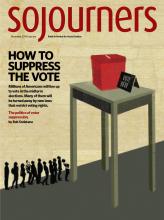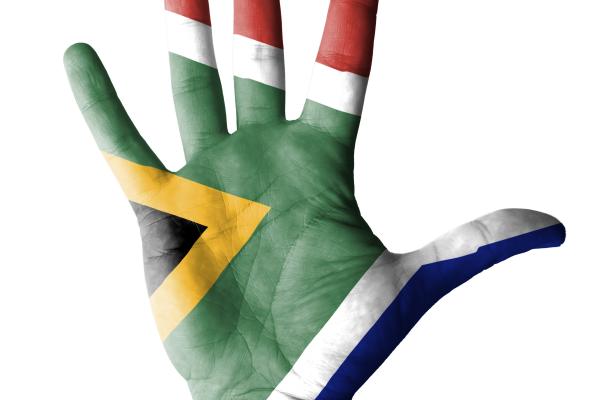SOUTH AFRICA has meant a lot to Sojourners over the years. In the 1980s, I was invited to come to South Africa by key church leaders there, including Beyers Naudé, the first white minister defrocked by the Dutch Reformed Church for opposing apartheid; Desmond Tutu, the Anglican archbishop of Cape Town; theologian and preacher Alan Boesak; and Frank Chikane, a Pentecostal minister who came up through the ranks of the movement to lead the South African Council of Churches.
They became my “comrades,” as they say in South Africa, for six weeks that happened to fall during Lent—it was a powerful season for me of seeing and feeling the pain of that beloved country while looking for the hope that comes from people who make costly commitments. Together we worked on a strategy between South African and U.S. church leaders to end apartheid.
Ten years later I returned to witness the victory of that hope in the miracle of Nelson Mandela’s inauguration as South Africa’s first black president, and later came back for an international reunion of anti-apartheid activists. Those formative years in the South African movement for freedom helped give me my theology of hope—which I learned means believing in spite of the evidence and watching the evidence change.
Read the Full Article

